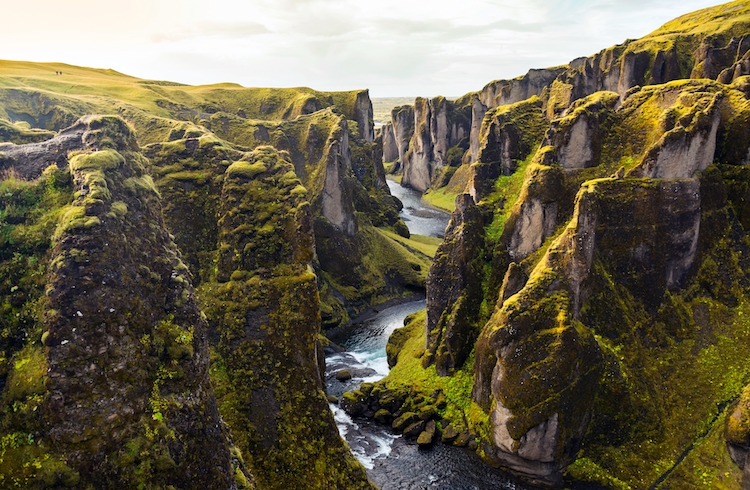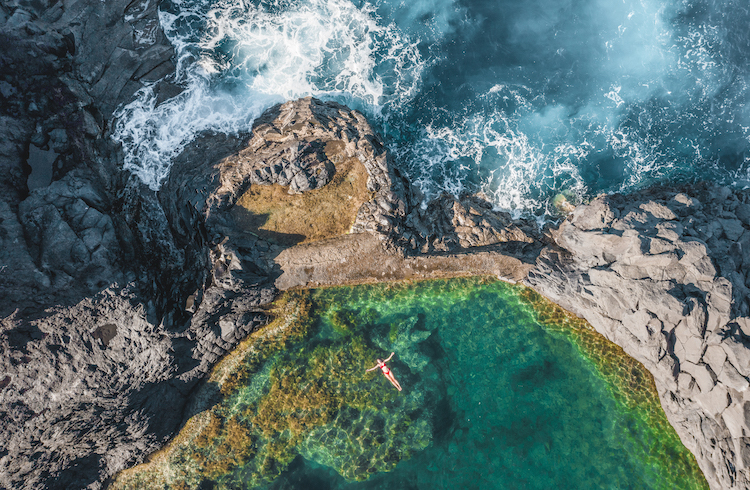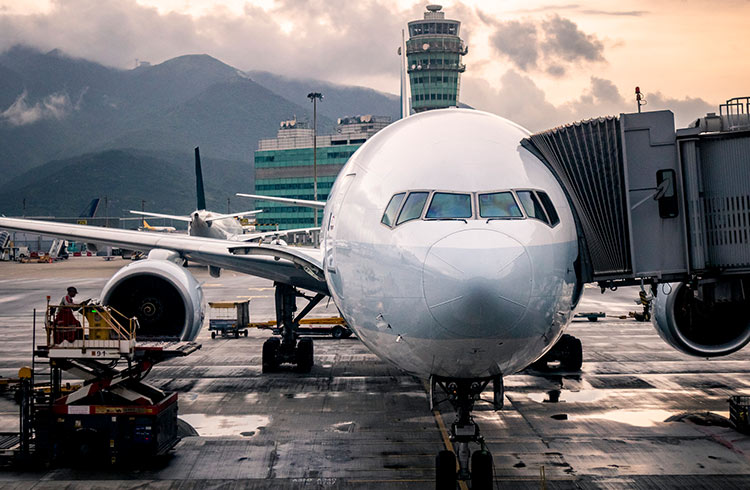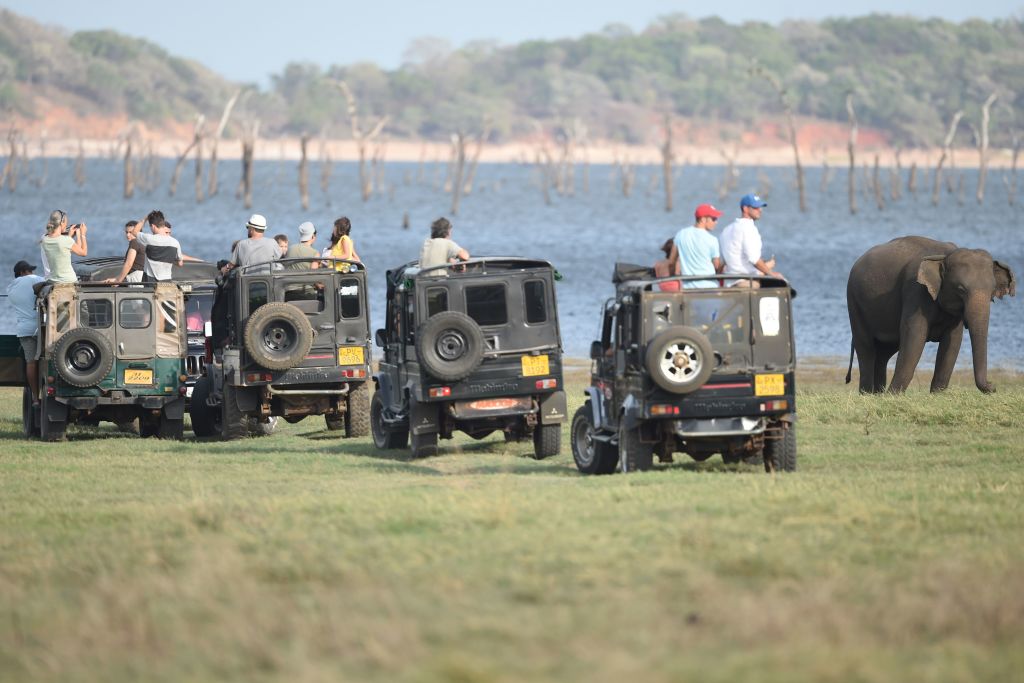Is it Responsible Travel to Visit Very Remote Places?
Before you ditch popular beaches and cities, know the pros and cons of visiting untouched places, and learn how to do it responsibly.
 Photo © Getty Images / Stefan Cristian Cioata
Photo © Getty Images / Stefan Cristian Cioata
- The lure of remote travel
- Remote travel intentions
- Unintended consequences
- Getting there
- Consumers or ambassadors?
- Remote travel done right
As vaccination rates rise and the pandemic abates, many countries are welcoming travelers back to their shores. While some people will ease back into travel by vacationing in a familiar city or on an idyllic island before venturing further afield, a growing number are leaving their troubles behind and heading to far-away destinations for adventure and intrigue.
The lure of remote travel
“The idea of really being out there is going to have a lot of appeal,” says Lonely Planet Vice President of Experience, Tom Hall. “People will be seeking out more remote experiences that they can enjoy privately or in smaller groups for that feeling of being able to see the wonderful things of the world without it being a mass tourist experience,
While social distancing is likely to be a consideration for some time to come, many travelers are also planning their next trips based on what they most missed about travel – the unexpected moments they talk about later, the sense of wonder at the natural beauty of a place, the locals they met along the way.
There’s an element of immersion which is absolutely inherent in going to more remote places,” Hall says. “The opportunity for more intimate and personal experiences is stronger, and the chance to meet people who actually live there and to learn about their lives is easier if you’re in a place where there are fewer other visitors.”
Remote travel intentions
Booking.com’s 2021 Sustainable Travel Report found US travelers are more committed than ever to more-mindful travel, with almost half saying the pandemic has influenced them to travel more sustainably in the future. With that in mind, 65 per cent said they would avoid popular destinations and attractions to ensure they aren’t contributing to overtourism, and that they wanted to help disperse the positive benefits of travel to less frequently visited destinations and communities.
“Our research uncovers how the travel hiatus has opened travelers’ eyes to the impact, both positive and negative, that their trips can have on local ecosystems and communities around the world,” says Booking.com Director of Sustainability, Marianne Gybels.
Almost two-thirds of the 29,000 respondents reported wanting to have authentic experiences representative of the local culture when they travel, and 68% said they wanted to ensure the economic impact of the industry is spread equally in all levels of society.
Unintended consequences
While travelers may have good intentions, wanting to travel ethically and sustainably and doing so are very different things – especially when it comes to visiting remote communities.
As Responsible Travel co-founder Justin Francis points out, visiting remote communities can be a way to experience a place and its history in a deeper way and to learn about ways of life different to our own. In turn, travelers can provide income to help preserve local people’s traditions and livelihoods and help them protect local habitats – in the Amazon or Maasai Mara, for example.
“But if a visit lacks sensitivity and research, it can certainly be harmful,” Francis says. “The first thing we should question is our own motivation – are we searching for a genuinely meaningful exchange, or just an Instagram post?”
Hall says the other questions to ask are whether a destination is ready to receive travelers, and whether travelers are welcome there.
When there’s unplanned development in a remote destination to cater for growing numbers of travelers, or communities feel imposed upon (or worse, under siege), Hall says remote travel can become a negative.
Of course, the global pandemic means careful consideration must also be given to the health aspects of visiting, especially in areas of low or varying rates of vaccination.
“When money is a driver for welcoming outsiders, but people in the local community become unwell as a result – that’s a remote-travel downside,” Hall says.

Getting there
Environmentalist Jon Dee raises the question of just how sustainable it is to travel to far-away places. “While traveling to remote places can help you avoid the crowds, it’s hard to avoid having a negative impact on the environment – even just by getting there,” the DoSomething founder says. “Remote places are by nature further away or more difficult to get to, which means you may be relying on multiple flights, a pollution-generating ship, or days of travel by bus, car or train to transport you and your luggage.”
So, while you may think you’re doing the responsible thing by choosing a less-touristed spot, your travel footprint may be much bigger than you imagine.
“And consider the logistics of providing you with water, gourmet food and transport once you get there,” Dee says. “Remote travel isn’t always the most sustainable travel choice.”
Consumers or ambassadors
There’s also the question of whether we should be traveling to pristine natural environments at all. Antarctica, for example, is growing in popularity as a remote travel destination, and although all tour operators require guests to follow strict protocols (inspecting their clothes for soil or seeds, and disinfecting boots before stepping onto the ice, for example), petrol-powered dinghies transport travelers from carbon-generating ships to shore. Plus, we can’t help but introduce bacteria and viruses (along with whatever we’ve missed that drops from our clothes) just by being there.
One argument for going is that carefully controlled tourism generates funding and advocacy for Antarctica’s preservation. But research by Robert Powell, professor of Parks and Environmental Ethics at Clemson University found that while travelers to Antarctica were generally moved by their experience and learned about the importance of protecting it, their intentions to become ambassadors for Antarctica often fizzled out within a few months of returning home.
The research also found that although guests were advised to keep a respectful distance from wildlife, 62 per cent of study respondents felt their fellow travelers approached wildlife too closely.
Remote travel done right
There are several options for travelers wanting to escape the crowds to do so ethically and sustainably. The first is to join a small-group tour with external certifications that hold operators accountable: 1% For The Planet, The Rainforest Alliance or Certified B Corporation, for example.
Intrepid Travel, a BCorp tour operator, bakes sustainability into each of its itineraries. Intrepid is ‘climate positive’, meaning it offsets more carbon than it emits through its trips and operations. From low-impact modes of transport to supporting locally owned accommodation and restaurants, social enterprises, and community-empowerment initiatives, Intrepid is a leader in regenerative travel.
If eco-minded experiences in uncrowded destinations are a priority for you, but you want to travel independently, another option is to explore lesser-known parts of a country that’s easy to get to.
Lonely Planet is now celebrating people and projects transforming travel for the better with its Best in Travel awards, and some countries are coming up with low-impact journeys with responsible independent travelers in mind.
In Slovenia, for example, a Green Capitals Route encourages travelers to visit green-certified destinations by providing them with maps and suggestions for where to eat, sleep and have fun from Ljubljana through Kočevje and the Bela Krajina region – all accessible by bicycle, train or car.
It’s not so much how far away you travel, but what you do when you get to an uncrowded destination that makes you a responsible remote traveler. Be mindful of what you pack (don’t forget your reusable water bottle), what you use and dispose of while you’re there, and how respectful you are of local people and their customs.
Want to go to Finland? Choose eco-accommodation and low-impact activities (think electric snowmobile tour, ice-skating and slow boats) while you’re there. Want to hike in a national park and not see another soul? Skip the well-trodden hiking tracks and visit one you’ve never heard of – in your own country, or abroad.
“COVID-19 has opened the door for a fresh start,” says Intrepid Travel co-founder Geoff Manchester. “In life, it is so rare that we are given a second chance, and it’s important we don’t treat this like a fork in the road but rather a chance to forge a new path altogether – one where the rules can be rewritten to benefit the most vulnerable people, to protect the natural world and all the animals and humans who inhabit it, and to heal our planet from the damage we’ve caused.”
Related articles
Simple and flexible travel insurance
You can buy at home or while traveling, and claim online from anywhere in the world. With 150+ adventure activities covered and 24/7 emergency assistance.
Get a quote


No Comments